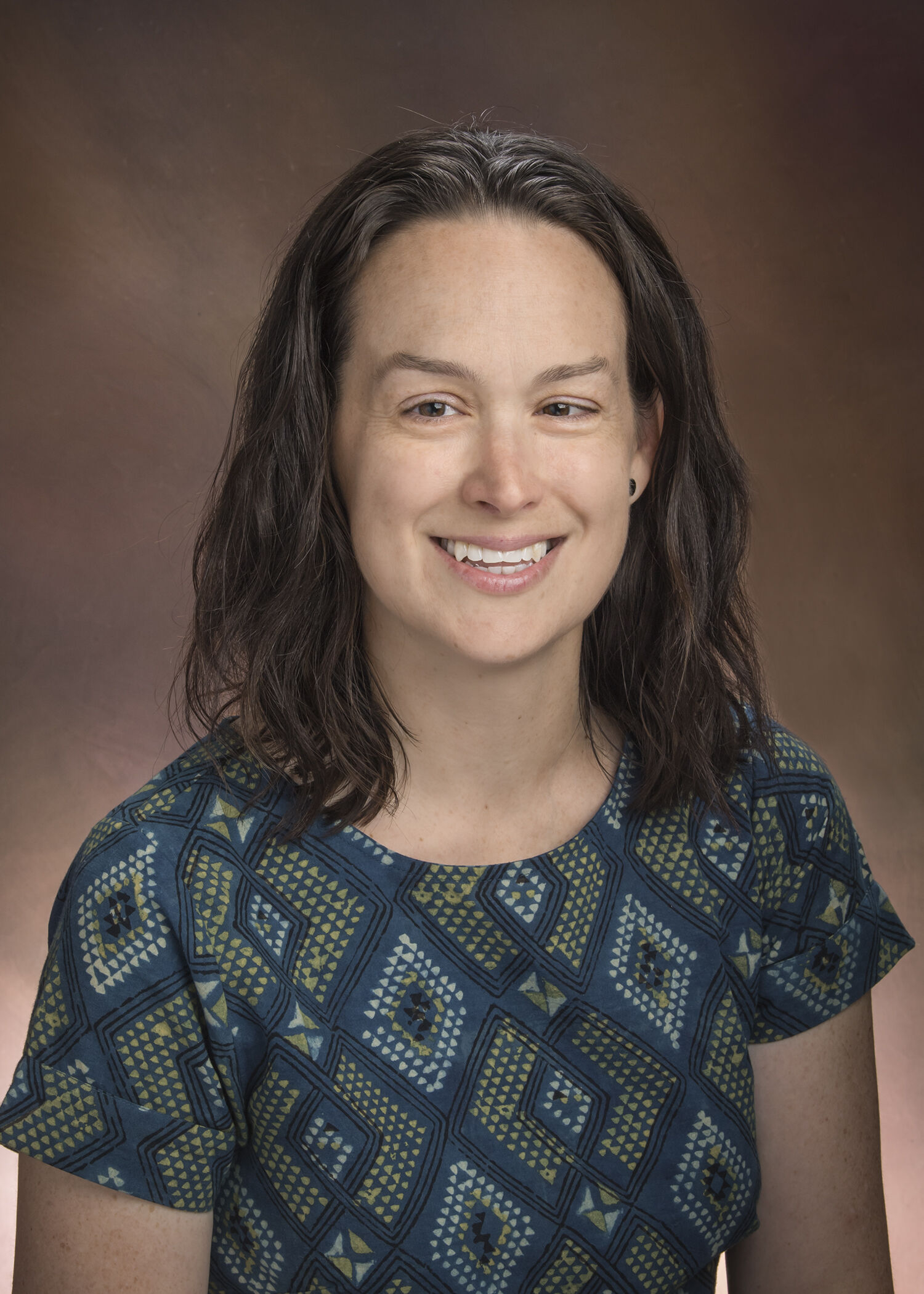
Lisa Wray, MD
Locations: Main Building
About Lisa Wray, MD
Lisa Wray, MD, is a board-certified pediatric hematologist-oncologist and an attending physician with the Cancer Center. She specializes in caring for children with cancer who are undergoing stem cell transplant or CAR T-cell therapy and pursues research with the goal of improving the results of those therapies.
For Dr. Wray, choosing a specialty in pediatric oncology came from a very personal experience – in college, a close childhood friend of hers died from cancer. “I wanted to care for others as I wish he had been cared for and advance care for pediatric oncology patients as a whole,” says Dr. Wray.
She is particularly excited by the progress the scientific community is making in treating childhood cancers, especially with stem cell transplant and CAR T-cell therapies. “I am fascinated by the science underlying these therapies which continues to rapidly evolve,” Dr. Wray says.
A scientist at heart, she doesn’t lose sight of the individual needs of each patient. “We have an incredible spectrum of people and services caring for every patient. We attempt to care for every patient and family as we would care for our own,” she says.
Dr. Wray earned her medical degree at Temple University School of Medicine and completed her pediatric residency, as well as a Hematology/Oncology fellowship at Children’s Hospital of Philadelphia. She is currently an associate professor of Pediatrics, Perelman School of Medicine at the University of Pennsylvania.
Dr. Wray has published several papers and presented on various topics within oncology; she also served for four years on the Expert Review Board for KidsHealth.org. She is a long-standing member of the American Society for Transplantation and Cellular Therapy (ASTCT), American Society of Hematology (ASH) and the Children's Oncology Group (COG).
Dr. Wray’s current research focuses on improving stem cell transplant and CAR T-cell therapies. Within the realm of stem cell transplants, her work is aimed at optimizing nutrition for patients undergoing transplant. Regarding CAR T-cell therapy, she is interested by how the immune system is affected by, and recovers following, the therapy. “I’m excited to see CAR T-cell therapies be used to treat an ever-expanding range of diagnoses,” she says.
Titles
Attending Physician
Associate Professor of Pediatrics, Perelman School of Medicine at the University of Pennsylvania
Certifications
Pediatric Hematology-Oncology – American Board of Pediatrics
Pediatrics – American Board of Pediatrics
Awards and Honors
2013 & 2014, Faculty Educator of the Month Award, selected by Pediatric Residents, Thomas Jefferson University Hospital
2010-2012, Hyundai Hope on Wheels Scholar Grant
Leadership and Memberships
Memberships in Professional Organizations
International
2009-present, Children's Oncology Group (COG)
National
2010-present, American Society for Blood and Marrow Transplantation (ASBMT)
2010-present, American Society of Hematology (ASH)
Editorial and Academic Positions
Editorial Positions
2014-2018, Expert Review Board, KidsHealth.org
Education & training
Medical Degree
MD - Temple University School of Medicine, Philadelphia, PA
Internship
Pediatrics - Children's Hospital of Pittsburgh, Pittsburgh, PA
Residency
Pediatrics - Children's Hospital of Philadelphia, Philadelphia, PA
Fellowship
Hematology/Oncology - Children's Hospital of Philadelphia, Philadelphia, PA
Publications
Publications
2015
Vujkovic M, Kershenbaum A, Wray L, McWilliams T, Cannon S, Devidas M, Stork L, Aplenc R.: Associations between genetic variants in folate and drug metabolizing pathways and relapse risk in pediatric acute lymphoid leukemia on CCG-1952. Leukemia Research Reports 4(2): 47-50, Jul 2015. PMCID: PMC4621538
2014
Wray L, Vujkovic M, McWilliams T, Cannon S, Devidas M, Stork L, Aplenc R.: TPMT and MTHFR genotype is not associated with altered risk of thioguanine-related sinusoidal obstruction syndrome in pediatric acute lymphoblastic leukemia: a report from the Children's Oncology Group. Pediatric Blood & Cancer 61(11): 2086-8, Nov 2014. PMCID: PMC4283196
2005
Smith K, Wray L, Klein-Cabral M, Schuchter L, Fox K, Glick J, DeMichele A.: Ethnic disparities in adjuvant chemotherapy for breast cancer are not caused by excess toxicity in black patients. Clinical Breast Cancer 6(3): 260-9, Aug 2005.
2003
DeMichele A, Martin AM, Mick R, Gor P, Wray L, Klein-Cabral M, Athanasiadis G, Colligan T, Stadtmauer E, Weber B.: Interleukin-6 -174G-->C polymorphism is associated with improved outcome in high-risk breast cancer. Cancer Research 63(22): 8051-6, Nov 2003.